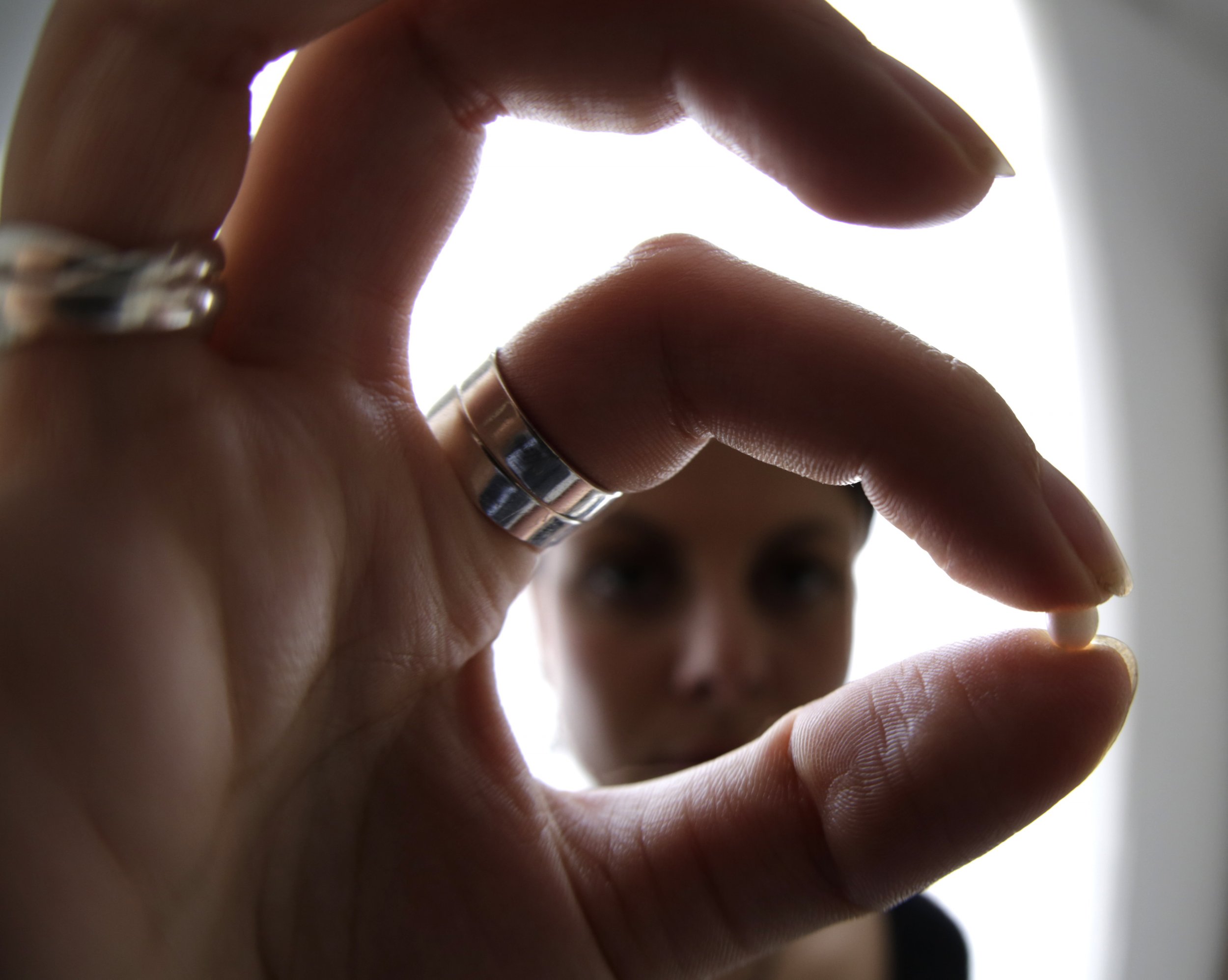
Depression is a common complaint among women on the pill, and now research is backing them up. In a landmark study of more than a million women, a Dutch research team found that those on the pill were 23 percent more likely to suffer from depression than those who weren't. In teenage girls, the figure jumped to 80 percent.
The scientists, who published their findings online on September 28 in the journal JAMA Psychiatry, found that other hormone-based contraceptives—like the mini-pill, the patch, the vaginal ring and hormonal IUD—were linked to even greater risks of depression. The likelihood of needing antidepressants for women who used progestin-only pills (or the mini-Pill), IUDs and the ring were 34 percent, 40 percent and 60 percent higher, respectively, compared with women who weren't on birth control. But women on the patch faced the highest risk of all—they were twice as likely to report being depressed.
The study, conducted by researchers at the University of Copenhagen, is the largest of its kind. For 13 years, from 2000 to 2013, researchers monitored more than a million Dutch women of childbearing age (defined as those between 15 and 34 years of age) with no prior history of depression. They used the Dutch equivalent of social security numbers to track subjects' birth control prescriptions and depression diagnoses, if any existed.
The researchers observed that women were most likely to be depressed 6 months into using contraceptives. But the risk began to decline after one or more years of use. Women who started birth control at a later age were less likely to be depressed.
The study suggests a correlation between depression and contraceptive use, but it does not demonstrate that birth control causes depression. That will require further studies.
Contraceptive use is virtually universal in the U.S., with 99 percent of sexually active women reporting they used birth control at some point in their lives. Figures suggest that 62 percent of women of childbearing age currently use one or more types of contraceptives. The pill and female sterilization are the preferred methods of birth control, each favored by a quarter—roughly 9.5 million—of contraceptive-using women.
Uncommon Knowledge
Newsweek is committed to challenging conventional wisdom and finding connections in the search for common ground.
Newsweek is committed to challenging conventional wisdom and finding connections in the search for common ground.
About the writer
To read how Newsweek uses AI as a newsroom tool, Click here.








